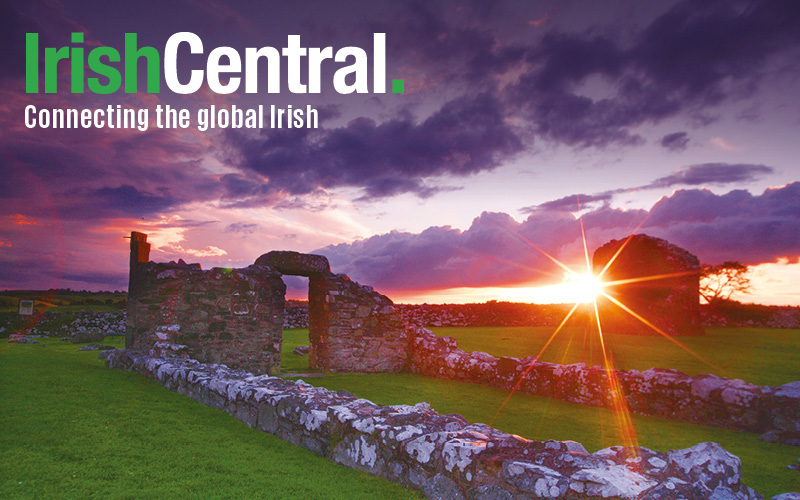After claims that the company was unleashing a “war on Easter” in order to make a few more dollars, Cadbury has once again used the name of the Christian holiday in their annual egg hunt.
Once the end of Lent nears and the supermarket shelves are full of every variation of a chocolate egg that the candy-making companies can come up with, it has become inevitable in the last few years that claims of a so-called “war on Easter” will also begin to emerge.
Over the past two years, in particular, Irish favorite Cadbury has been accused of unleashing this apparent “war on Easter” and of attempting to eradicate the name of the Christian holiday in their marketing and packaging so as to sell more products to those of different religions.
In 2017, especially, Cadbury came under fire for branding their annual egg hunt, held in the UK alongside England’s National Trust, as the “Cadbury Great British Egg Hunt,” even drawing the wrath of British Prime Minister Theresa May, a devout Christian and daughter of an Anglican vicar.
Read more: Cadbury’s accused of war against “Easter” on their chocolate eggs

Is Cadbury guilty of a war on Easter eggs? Image: iStock.
“I think the stance they have taken is absolutely ridiculous,” she said.
“I don’t know what they are thinking about frankly. Easter’s very important … It’s a very important festival for the Christian faith for millions across the world.”
The chocolate company has taken a u-turn in 2018, however, resurrecting the use of “Easter” in the hunt and naming the free nationwide event the “Cadbury Easter Egg Hunt” once more.
"We have used the word Easter in our marketing and communications for over 100 years and continue to do so in our current Easter campaign and National Trust partnership,” said a spokesperson from Cadbury.
The British chocolate giant, now owned by Mondelez International (formerly Kraft Foods), is not the only company to be accused of this “war on Easter,” however, with Nestle in 2016 being forced to defend the lack of the word “Easter” on their packaging because they felt that it was implied by the chocolate egg itself.
Read more: A guide to celebrating a traditional Irish Easter

The Cadbury egg hunt has returned Easter to its title. Image: iStock.
“There has been no deliberate decision to drop the word Easter from our products and the name is still widely used at Nestle,” said a spokesperson at the time.
Others are not convinced that this is not all part of a calculated move by the chocolate companies to sell more eggs by removing the reference to a Christian feast day. David Marshall, founder of The Meaningful Chocolate Company – an English company that sells both advent calendars and Easter eggs unashamedly bearing references to Christianity – claims the decision to remove the word “Easter” is a deliberate attempt at secularization of the food product.
Not only has Marshall named his own product the “Real Easter Egg” in retaliation but the company includes mentions of Jesus and the events of Holy Week on their packaging.
Selling his Fair Trade charity “Real Easter Egg” from his own company, Marshall found that, in the UK at least, 79% of 2,000 adults quizzed would prefer the word to remain on the branding.

Will you be buying chocolate eggs this year? Image: iStock.
"A lot of businesses are not comfortable with the religious aspect of the festival,” he said.
“If they want to make their product as attractive to as many people as possible it could well be that they want to remove references to the Christian festival because that will be seen as attaching to one faith tradition.”
“It’s deeply disappointing and shameful that some of the biggest companies in the country are censoring the centuries’ old tradition,” Marshall continued.
“It shows they’re insensitive and uncomfortable with the Christian faith.”
Eggs, although not always in chocolate form, have been used to celebrate Easter since the early days of the Christian church. Christians in Mesopotamia dyed eggs red to symbolize the blood Christ spilled during his crucifixion.

Image: iStock.
The egg is extremely symbolic for Christians, often seen as the symbol of Jesus. The hollow egg is seen as a symbol of his empty tomb on Easter Sunday and the cracking of the egg’s shell symbolizes Jesus’ resurrection.
The original chocolate egg was first developed Cadbury’s in collaboration with British chocolate maker and inventor Joseph Fry. Richard and George Cadbury produced the company’s first chocolate egg in 1875 with thanks to the chocolate molds developed by Fry.
By 1919, Cadbury and Fry merged their companies and in 1923 they developed the first chocolate egg filled with cream, a prototype for what was to become the famous Easter-only Cadbury Creme Egg.
Do you think that a “war on Easter” is underway? Let us know your thoughts in the comments section, below.




Comments